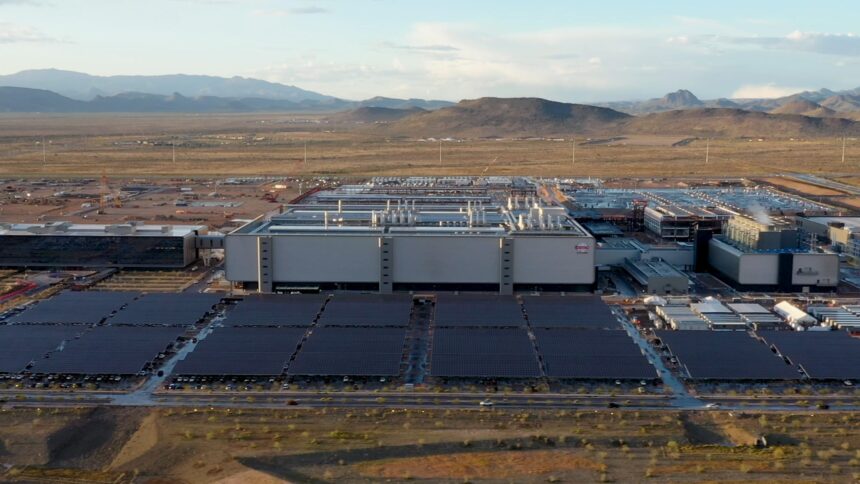TSMC warns the U.S. government that imposing tariffs on foreign-made semiconductors could slow down its massive $165 billion investment in semiconductor factories in Arizona. This comes amid the Biden administration’s efforts to boost domestic chip production and protect U.S. supply chains.
What’s Happening & Why This Matters
TSMC, which manufactures chips for giants like Apple, AMD, Nvidia, and Intel, cautions that tariffs risk shrinking electronics demand. This could jeopardize the timeline and financial capacity for constructing and operating its cutting-edge fabs in the U.S.
Investment and Production in Arizona
TSMC’s Arizona site currently operates one fab, with five more planned or under construction. The company expects the Arizona campus to eventually represent about 30% of its global production capacity for the advanced 2nm and below technology nodes.
The new fabs will use TSMC’s latest technology, including the A16 process node and Super Power Rail technology for efficient power delivery, targeting supply needs for the U.S. and global markets.
A Range of Responses
Several companies responded to the Commerce Department’s request for comments on proposed tariffs. For instance, Dell described U.S. chip manufacturing as “nascent” and unable to meet rising demand at scale.
Hewlett Packard Enterprise (HPE) warned that tariffs on imported semiconductors would harm domestic manufacturing and slow innovation, which would in turn harm national security and economic growth.
Intel, which produces chips in the U.S., emphasized the importance of protecting American-manufactured semiconductor wafers and urged exemptions for wafers made with U.S.-owned intellectual property and technologies. Intel highlighted that fully localizing supply chains is currently economically unfeasible.
TSMC’s Request to the U.S. Government
TSMC urges the U.S. to exempt its Arizona fabs and other committed domestic projects from any tariffs or import restrictions on semiconductors. Such exemptions would allow investment and production timelines to stay on track.
The company stresses that tariffs could create uncertainty around its Arizona fab operations, ultimately risking the resilience of the U.S. supply chain.
TF Summary: What’s Next
TSMC’s warning reveals a challenge in balancing U.S. policies to encourage domestic chip manufacturing without hindering investments through tariffs. The stakes are high as the U.S. races to secure semiconductor independence.
The government’s upcoming decisions on tariffs and exemptions dictate how quickly advanced chip production scales up on American soil. Investors, manufacturers, competitors, and national leaders are focused closely on any decisions. Delays impact tech giants, businesses, and consumers worldwide.
— Text-to-Speech (TTS) provided by gspeech


